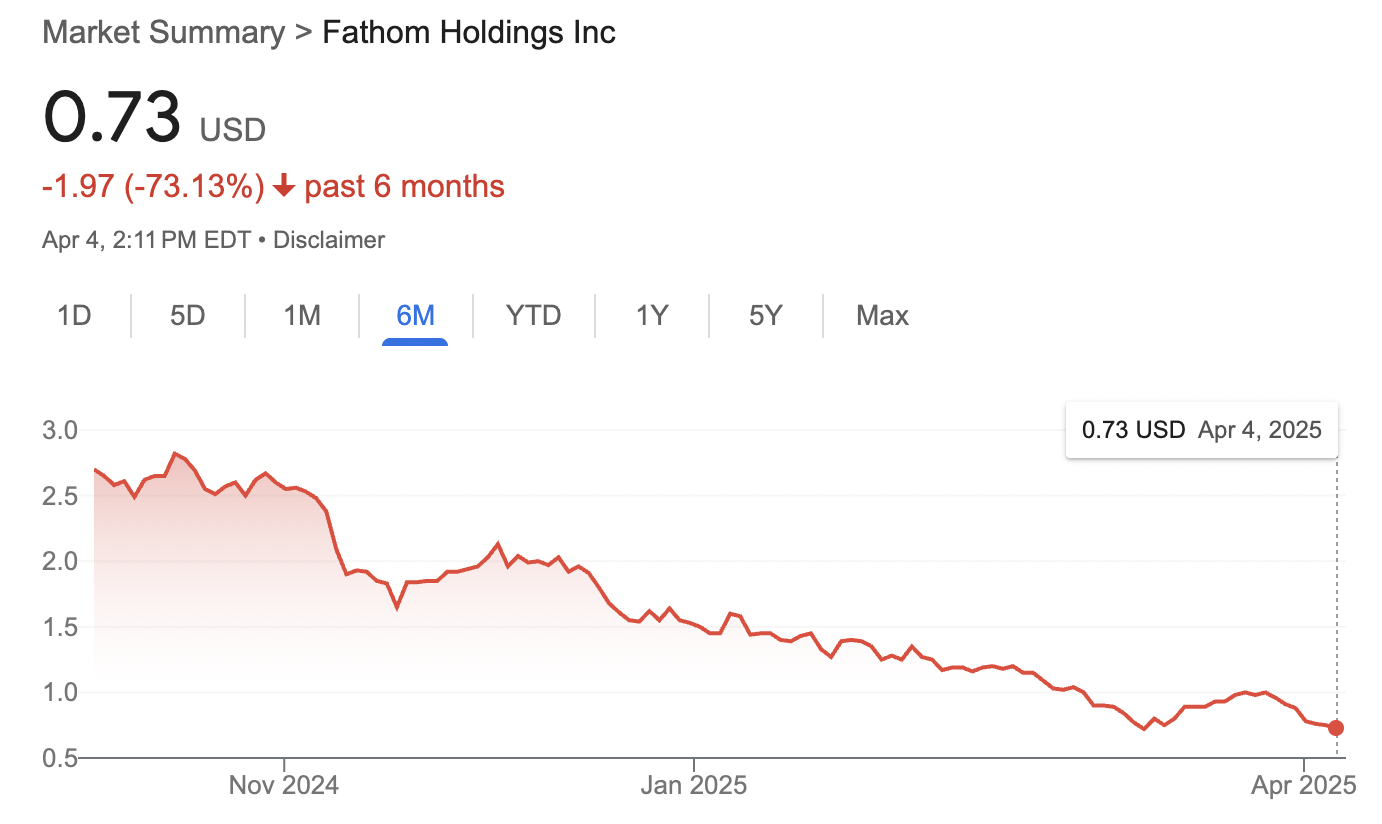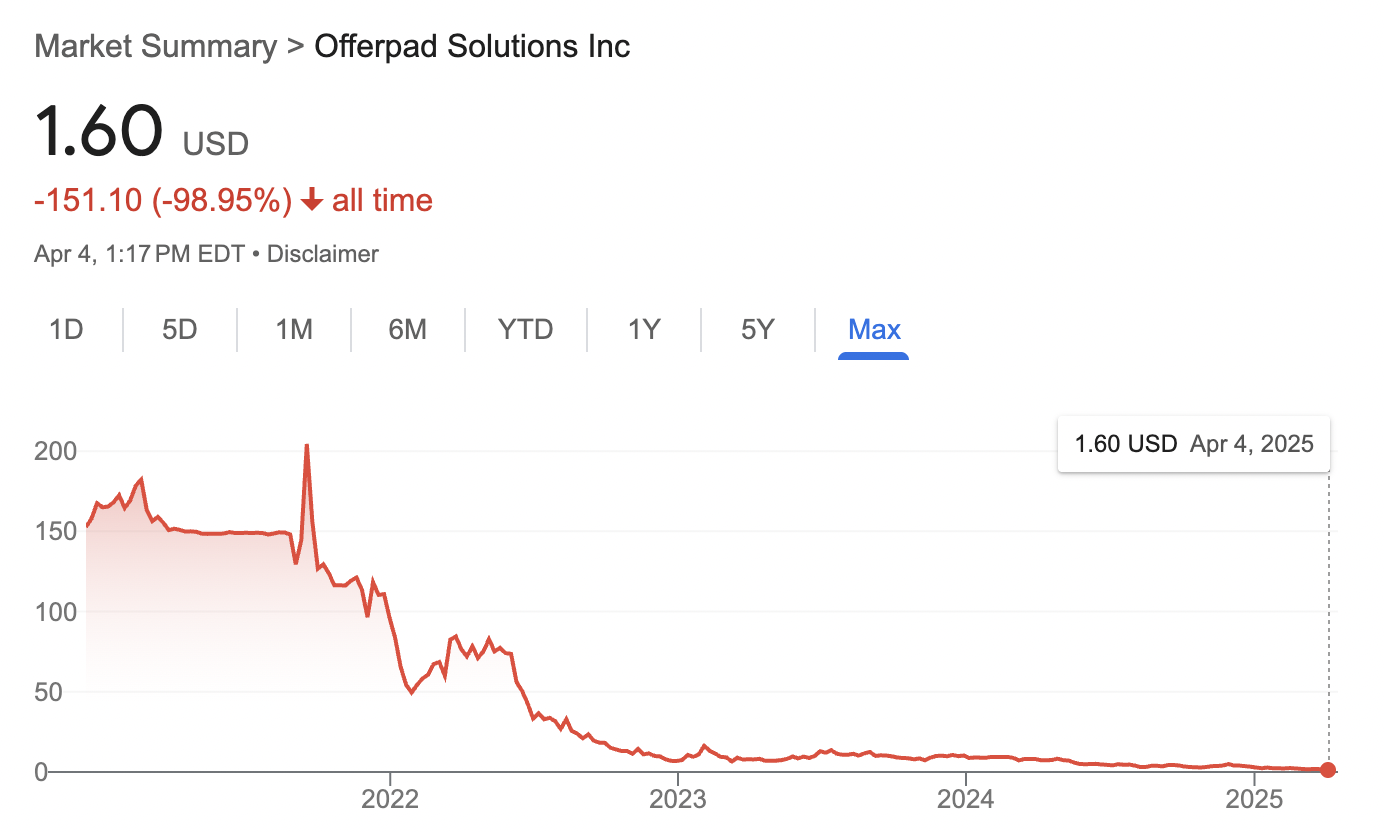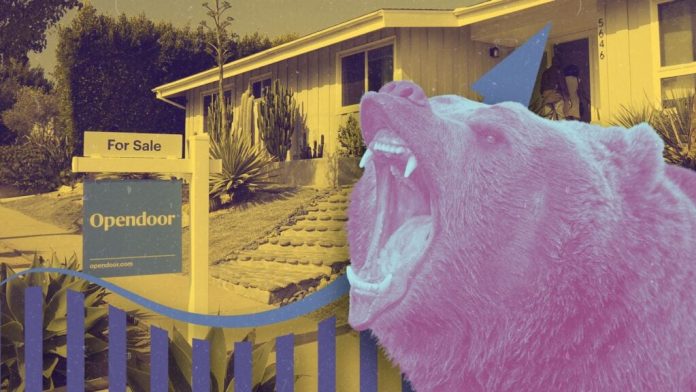Companies that can’t keep their shares over $1 risk being delisted from the stock market. Opendoor shares crossed that threshold this week, while Fathom crossed it last month.
Bigger. Better. Bolder. Inman Connect is heading to San Diego. Join thousands of real estate pros, connect with the power of the Inman Community, and gain insights from hundreds of leading minds shaping the industry. If you’re ready to grow your business and invest in yourself, this is where you need to be. Go BIG in San Diego!
As the U.S. economy grappled in recent days with the Trump administration’s sweeping tariffs, at least two big real estate companies were flirting with a dangerous milestone: the $1 per share threshold.
The threshold applies to publicly traded companies, which are required to keep their shares above $1 or risk getting booted from the market. The most recent big real estate company to cross that threshold was Opendoor, which first saw shares fall below $1 briefly on Tuesday. Opendoor’s share price recovered and hovered around $1 for most of Wednesday, then spent most of Thursday just below $1. By Friday, Opendoor shares were trading at times for as little as $0.88, though they began climbing in mid-afternoon.
TAKE THE INMAN INTEL INDEX SURVEY FOR MARCH
Those prices represent a significant reversal in fortune for the iBuyer, which back during the halcyon housing market days of 2021 saw shares trading for nearly $35. That proved to be the peak — at least so far — for Opendoor share prices and, notwithstanding some spikes along the way, they have been on a downward trajectory ever since. Prices had previously bottomed out in late 2022, but this week’s bear run represents a new all-time low price for the stock.
Part of what is happening is well outside of Opendoor’s control. Earlier this week, President Trump announced sweeping tariffs on almost all goods imported to the U.S. The tariffs have prompted condemnation from U.S. trading partners, as well as retaliatory tariffs on U.S. exports from countries such as China. The news set off the largest stock market drop since the early days of the COVID-19 pandemic, and prompted JPMorgan analysts to raise their forecasted odds of a recession to 60 percent.
In that context, Opendoor’s dip below $1 is part of a broader trend toward carnage in the markets.
But even before Trump’s tariffs, Opendoor was facing headwinds. In February, for instance, the company revealed that it lost $113 million in Q4 of 2024, up from $91 million during the same period a year earlier. Opendoor shares trended down in the days and weeks following the Q4 earnings report.
In total, Opendoor shares have fallen about 50 percent over the past six months.
Opendoor stock over the past six months. Credit: Google
Though Opendoor’s fortunes are closely watched in the real estate industry, the iBuyer is not the only company struggling to keep shares above $1. Enter Fathom Realty, which as of Friday afternoon saw shares trading for less than $0.80.
Fathom shares first fell below $1 in early March. The company’s attempts to reverse the downward trend — days ago Fathom unveiled a new concierge-oriented commission offering — have so far not resonated with investors.
In a conversation with Inman Friday, Tom White — a managing director and senior research analyst who covers real estate companies for D.A. Davidson — speculated that Fathom’s troubles could stem in part from the firm’s relative youth. White’s thesis was that in leaner economic times, agents might gravitate to leaner brokerages such as eXp or Real. But Fathom’s shares have fallen more than 70 percent over the last six months, a far greater dip than the roughly 30 percent drop off experienced by eXp and Real.
“It’s a little bit not that well-known as a brand,” White said. “It’s still sort of not really a mass market model for agents just yet.”

Credit: Google
Of course, like Opendoor, Fathom has not benefited from the market’s bear run in recent days, and most real estate companies are suffering. RE/MAX shares, for instance, are also down more than 30 percent over the last six months.
But Opendoor and Fathom are in a particularly perilous spot due to the $1 rule, which requires companies to keep shares on average above that price over a consecutive 30-day trading period. Falling below doesn’t immediately trigger penalties, but if delisting eventually happens, investors typically take it as a sign to avoid the company in question.
Offerpad provides a case study. The company’s shares fell below $1 in 2022, and Offerpad eventually faced delisting. In the face of that threat, Offerpad executed a 1-to-15 reverse stock split in June 2023.

Offerpad stock since the company went public in 2020. Credit: Google
Shares in Offerpad were trading in the $10 to $12 range in the wake of the split. However, like other real estate companies, Offerpad has suffered in recent months, with shares falling more than 50 percent since last October. As of Friday afternoon, Offerpad stock was trading for $1.60 — above the $1 threshold, though moving lower.
What happens now to all of these companies will, in large part, depend on the conditions in the broader economy. But either way, it’ll be up to the companies themselves to try to avoid the dreaded $1 threshold.
Email Jim Dalrymple II




